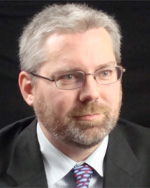
Tim McDougall
VP Products & Publisher, The (Cedar Rapids, Iowa) Gazette
Cedar Rapids, IA
[IA-E 0101]
Here is one of our “ah-ha” moments – and I’ve always believed in the power and purpose of journalism. That’s one of the reasons I came here. I mean I would never come here if I didn’t believe that it was a truly noble and good purpose to be working behind.
So in our local option sales tax vote that we had, which was about flood recovery, and a bunch of really important issues to this community. You know, one of the things that came out was – so we covered that story and we covered it a lot, but our lead reporter on it – or lead city reporter – he expected the vote to pass pretty easily as did most of the city leaders. They thought it was in a good position to pass. All the organization and all of the money was behind the “yes” part of this.
But we were seeing a very heavy thread of comments in our articles that was highly, highly negative, and it was –- we were seeing it getting more and more organized of this negative thread. Whereas mainly in the comments of the article [they] were saying: You guys are they not getting this point; you’re missing this part of it and that was getting more and more vocal. And we had discussions with the city saying we’re seeing this negative trend.
Now, you know, it may just be because commenters may be negative, so we don’t want to treat it as scientific, but it seems [there is] a much bigger ground swell of “anti” on this than you’re giving it credit for.
And it ended up – this thing – it was a very narrow vote, and it lost by a couple hundred votes so it was basically 50-50, but it lost.
But the insight from our writer Rick Smith – who’s a very – who’s an excellent reporter, veteran reporter, fantastic on city beat, but his insight was that he missed part of the story in the way he covered it. In hindsight, he said, “Look I’m covering the people who are the major city leaders, who are the major leaders of all the organizations. I’m covering the people that traditional journalists would cover on this.” And he goes, “I really didn’t see this whole groundswell happening over here because there wasn’t any leader or focus behind it, and it just started happening. And in hindsight I can go back and say – in the post analysis – and realize that it was there, but because of the way I covered the story and looked at my sources, I missed this thing that was happening over there.”
And he was the first one that came up with that and said, “Look, here’s my post analysis – here’s what happened on it – and in the future I’ve got to find a different way to cover these things.”
And we talked about how you embed yourself more in the community for that – because if you’re more embedded those things are more visible to you rather than just talking to leaders of organizations and leaders of city government, which is the traditional – the more traditional way that these stories are covered.
But that was an “Ah-ha” moment for all of us.
And, boy, in covering things traditionally that we’re used to covering it’s: Find the most important people that give the quotes and connect the quotes – but how did you miss the real story? And we missed part of the real story on this, which was the real story about just how visceral this negative vote was happening – and the people who were against this plan. And this is a big issue – it’s about flood protection in the next 20 years, and it’s about big flood protection the next century, and there would be a 20-year tax on it. This is an important issue for our community and a very emotional one.
But because of the way we covered it, which is a very traditional way, we missed part of the story. And that was a big “Ah-ha.” And whether that means a radically new way of journalism or not, but it just means we have to look at how we cover these things differently because – whether you’re a believer in the old school capital-J journalism or all this new stuff that Chuck talks about or I talk about – you know when you have Rick Smith, who is one of our best traditional journalists and a true print guy but a great, great reporter, look at you and say, “You know we missed the story. I missed the story. Because of the way we covered it. I got to re-look at how I do this.” That’s a big “ah-ha.”
To say, how do we really look at journalism and the role of journalism? And there may not have been tools 10 years ago for him to really be able to do that as effectively.
There are much better tools for him to do that now because of the way you can interact digitally and the speed you can interact with a large number of people – that you had to do legwork before – and it’s just the time consumption of doing that that was really hard.
And to hear Rick, who can be at times, he will self-admit he’s accused of being one of the traditional guys around here – but to hear Rick look at this and say, “Boy, there’s a different way I could have done this better.” That was a big “Ah-ha.”
I think that’s really great – not great in that we felt we missed part of the story – but great in seeing that insight from a Rick Smith to say,” Well, I know, I think I’ve thought of a way that a way I could do this better the next time those things come around.
Those are fun moments when you go through those – not to say that anything’s fun about missing part of a story but – to find a way to do it better going forward is really energizing. And to see it coming from someone like Rick is even better.


